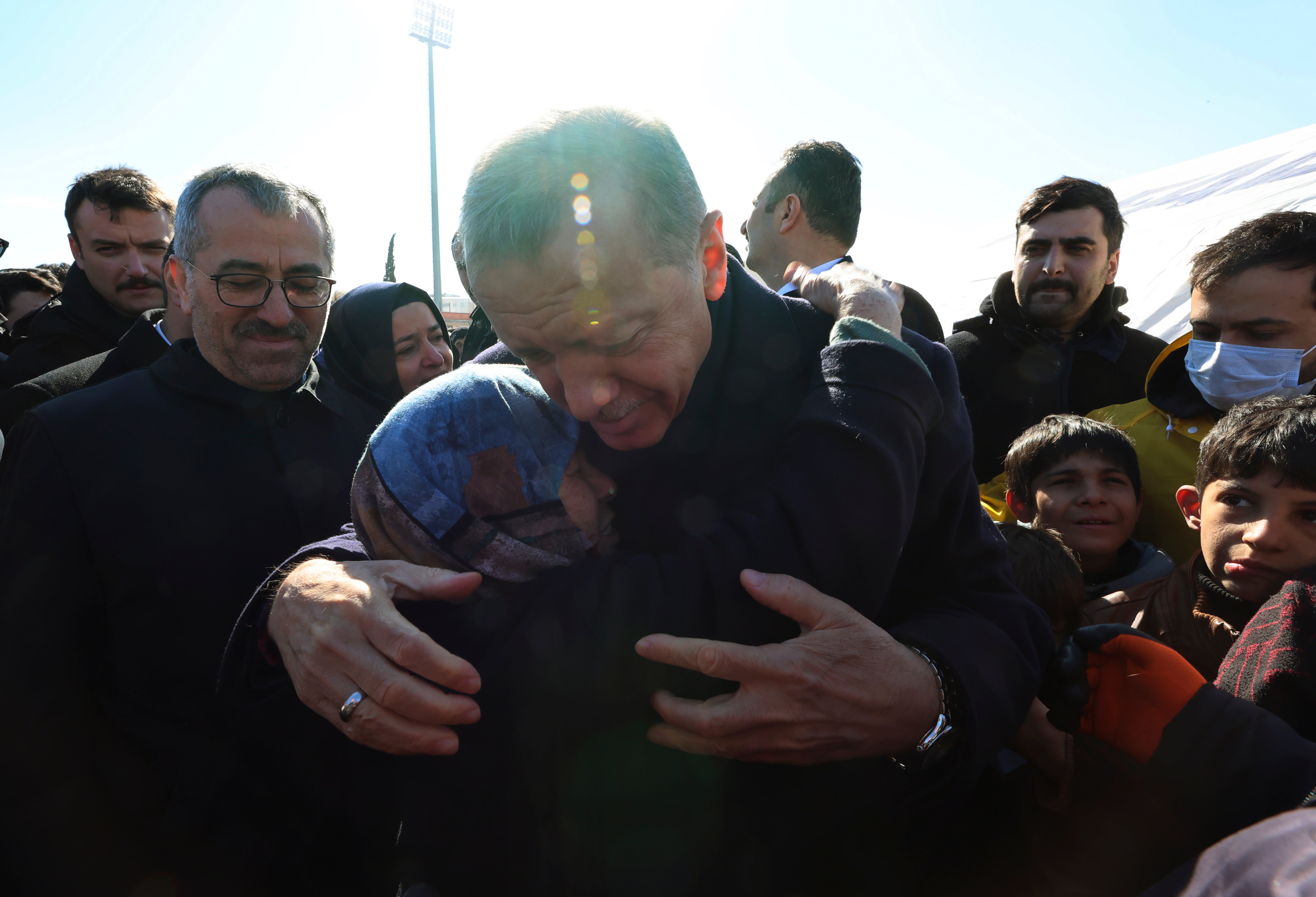Temperature drops to -5°C in Turkey as quake survivors sleep in cars
Death toll climbs to 12,391, with the number of injured now standing at 62,914
Temperatures in Turkey dropped to minus five degrees early on Thursday as thousands of people spent the night in makeshift shelters and cars following this week’s devastating earthquakes.
The death toll climbed to 12,391 by Thursday morning, the Disaster Management Authority (AFAD) said, according to the Cumhuriyet news website.
The number of injured has increased to 62,914.
Rescue and relief workers continued to comb through the rubble as people feared going back to their homes.
Authorities in the Turkish city of Gaziantep have asked thousands of residents to stay away from their homes, fearing aftershocks from the earthquakes.
“When we sit down, it is painful, and I fear for anyone who is trapped under the rubble in this,” said Melek Halici, who wrapped her two-year-old daughter in a blanket as they watched rescuers working late into the night, was quoted as saying to AFP.
“Eventually we will have to go to the tent, but I don’t want to,” she added. “I can’t bear the cold, but nor can I think about going back to our apartment.”
Another resident Suleyman Yanik sat with one child playing with his car steering wheel and his wife and another child asleep on the back seat.
“I have no choice,” he was quoted as saying.
“The smell is horrible, but we cannot go home,” he said referring to the dozens of fires that were lit to stay warm.
The 7.8 magnitude quake hit southern Turkey in the early hours of Monday, followed by powerful aftershocks.
Thousands of buildings across Turkey and northern Syria were reduced to rubble as people slept.
On Wednesday, Turkey’s president Recep Tayyip Erdogan visited the Hatay province, where more than 3,300 people died and entire neighbourhoods were destroyed.

Residents there have criticized the government’s efforts, saying rescuers were slow to arrive.
Mr Erdogan, who is facing re-election in May, acknowledged “shortcomings” in his government’s relief efforts and said that the winter has been a factor in hampering rescue.
“It is not possible to be prepared for such a disaster,” he said. “We will not leave any of our citizens uncared for.”
He also lashed out at critics and said “dishonorable people” were spreading “lies and slander” about the government’s actions.
Experts say that the survival window for those trapped under the rubble or otherwise unable to obtain basic necessities was closing rapidly.
“The first 72 hours are considered to be critical,” Steven Godby, a natural hazards expert at Nottingham Trent University, was quoted as saying to the Associated Press.
“The survival ratio on average within 24 hours is 74 per cent, after 72 hours it is 22 per cent and by the fifth day it is 6 per cent.”
(Additional reporting by agencies)
Join our commenting forum
Join thought-provoking conversations, follow other Independent readers and see their replies
Comments
Bookmark popover
Removed from bookmarks